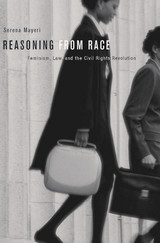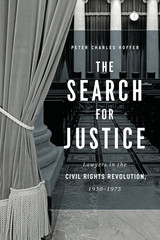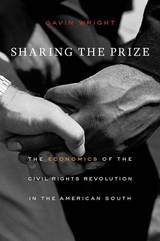
Informed in 1944 that she was “not of the sex” entitled to be admitted to Harvard Law School, African American activist Pauli Murray confronted the injustice she called “Jane Crow.” In the 1960s and 1970s, the analogies between sex and race discrimination pioneered by Murray became potent weapons in the battle for women’s rights, as feminists borrowed rhetoric and legal arguments from the civil rights movement. Serena Mayeri’s Reasoning from Race is the first book to explore the development and consequences of this key feminist strategy.
Mayeri uncovers the history of an often misunderstood connection at the heart of American antidiscrimination law. Her study details how a tumultuous political and legal climate transformed the links between race and sex equality, civil rights and feminism. Battles over employment discrimination, school segregation, reproductive freedom, affirmative action, and constitutional change reveal the promise and peril of reasoning from race—and offer a vivid picture of Pauli Murray, Ruth Bader Ginsburg, and others who defined feminists’ agenda.
Looking beneath the surface of Supreme Court opinions to the deliberations of feminist advocates, their opponents, and the legal decision makers who heard—or chose not to hear—their claims, Reasoning from Race showcases previously hidden struggles that continue to shape the scope and meaning of equality under the law.

The Search for Justice is a look the role of the lawyers throughout the period, focusing on one of the central issues of the time: school segregation. The most notable participants to address this issue were the public interest lawyers of the NAACP’s Legal Defense Fund, whose counselors brought lawsuits and carried out appeals in state and federal courts over the course of twenty years. But also playing a part in the story were members of the bar who defended Jim Crow laws explicitly or implicitly and, in some cases, also served in state or federal government; lawyers who sat on state and federal benches and heard civil rights cases; and, finally, law professors who analyzed the reasoning of the courts in classrooms and public forums removed from the fray. With rich, copiously researched detail, Hoffer takes readers through the interactions of these groups, setting their activities not only in the context of the civil rights movement but also of their full political and legal legacies, including the growth of corporate private legal practice after World War II and the expansion of the role of law professors in public discourse, particularly with the New Deal. Seeing the civil rights era through the lens of law enables us to understand for the first time the many ways in which lawyers affected the course and outcome of the movement.

Winner of the Alice Hanson Jones Prize, Economic History Association
A Choice Outstanding Academic Title of the Year
The civil rights movement was also a struggle for economic justice, one that until now has not had its own history. Sharing the Prize demonstrates the significant material gains black southerners made—in improved job opportunities, quality of education, and health care—from the 1960s to the 1970s and beyond. Because black advances did not come at the expense of southern whites, Gavin Wright argues, the civil rights struggle was that rarest of social revolutions: one that benefits both sides.
“Wright argues that government action spurred by the civil-rights movement corrected a misfiring market, generating large economic gains that private companies had been unable to seize on their own.”
—The Economist
“Written…with the care and imagination [Wright] displayed in his superb work on slavery and the southern economy since the Civil War, this excellent economic history offers the best empirical account to date of the effects the civil rights revolution had on southern labor markets, schools, and other important institutions…With much of the nation persuaded that a post-racial age has begun, Wright’s analytical history…takes on fresh urgency.”
—Ira Katznelson, New York Review of Books
READERS
Browse our collection.
PUBLISHERS
See BiblioVault's publisher services.
STUDENT SERVICES
Files for college accessibility offices.
UChicago Accessibility Resources
home | accessibility | search | about | contact us
BiblioVault ® 2001 - 2024
The University of Chicago Press









